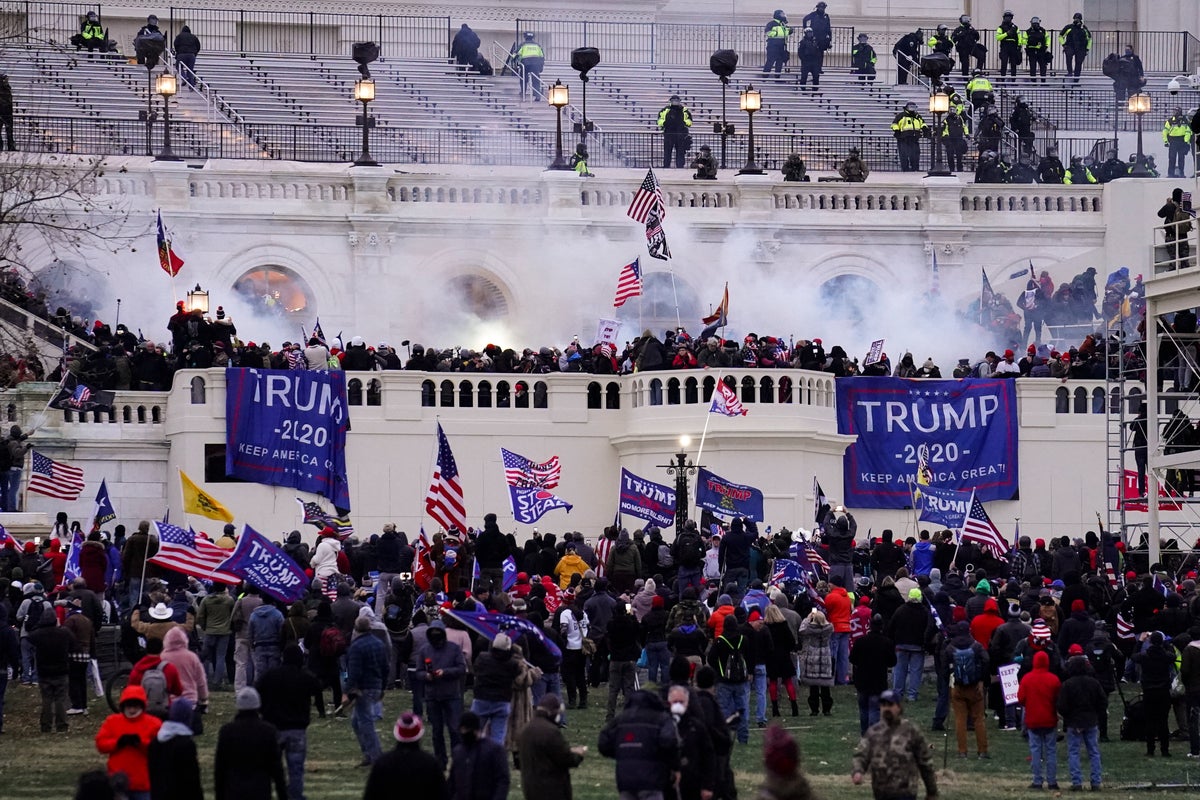
The Department of Justice has asked a federal court to let a group of police officers and members of Congress proceed with a lawsuit seeking damages against former president Donald Trump for his role in inciting the January 6 attack on the Capitol.
In December, a three-judge panel of the DC Circuit Court of Appeal heard arguments over whether the lawsuit, which was filed against the twice-impeached ex-president by a pair of police officers and 11 Democratic members of Congress, should be allowed to proceed or be dismissed because of the immunity Mr Trump enjoyed while leading the executive branch during his term in office.
The plaintiffs in that case have asked a court to hold Mr Trump liable for physical and emotional injuries suffered during the riot by a pro-Trump mob intent on keeping him in office by preventing certification of his 2020 election loss to Joe Biden.
The DC Circuit panel asked the Department of Justice to weigh in on whether the government believes Mr Trump’s presidential immunity should shield him for inciting the riot because he was in office at the time.
In a brief filed with the court on Thursday, DOJ attorneys said that immunity did not extend to Mr Trump’s actions before the riot because they were not part of his official duties as president.
“Speaking to the public on matters of public concern is a traditional function of the Presidency, and the outer perimeter of the President’s Office includes a vast realm of such speech,” they said. “But that traditional function is one of public communication. It does not include incitement of imminent private violence”.
They urged the court to look to a 1969 ruling dealing with the Ku Klux Klan, Brandenburg v Ohio, as a guide for whether Mr Trump’s exhortations to the crowd of his supporters, who he urged to “fight like hell,” should be protected.
Citing Brandenberg, they argued that Mr Trump’s remarks fall outside the First Amendment’s free speech guarantees because they were “directed at inciting or producing imminent lawless action” or “likely to incite or produce such action”.
“Just as denying First Amendment protection to incitement does not unduly chill speech in general, denying absolute immunity to incitement of imminent private violence should not unduly chill the President in the performance of his traditional function of speaking to the public on matters of public concern,” they said.







